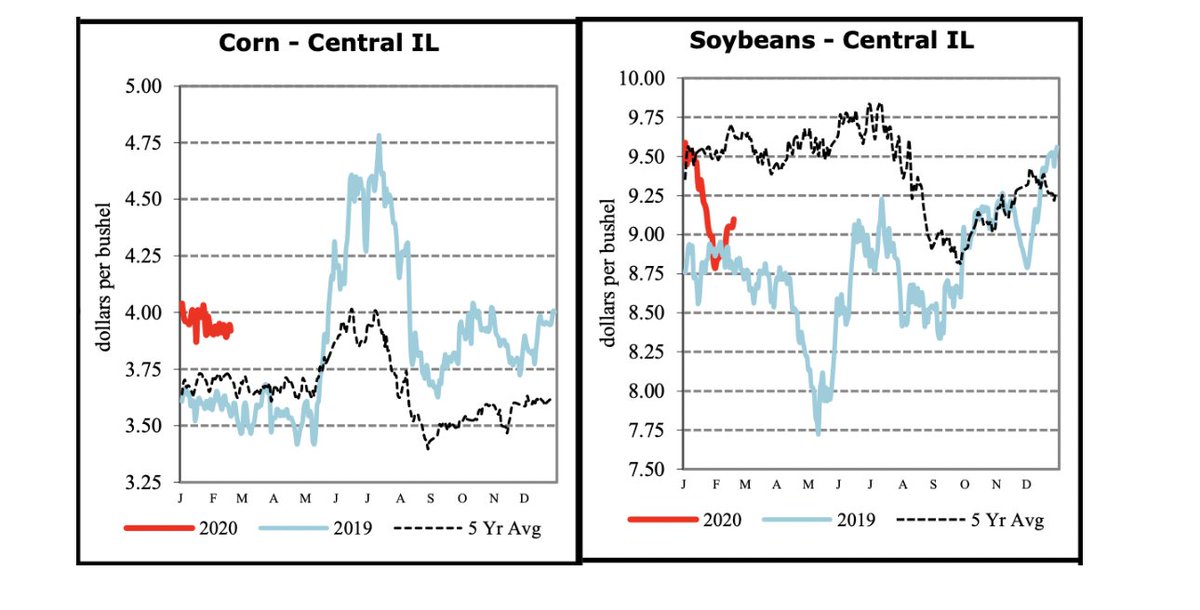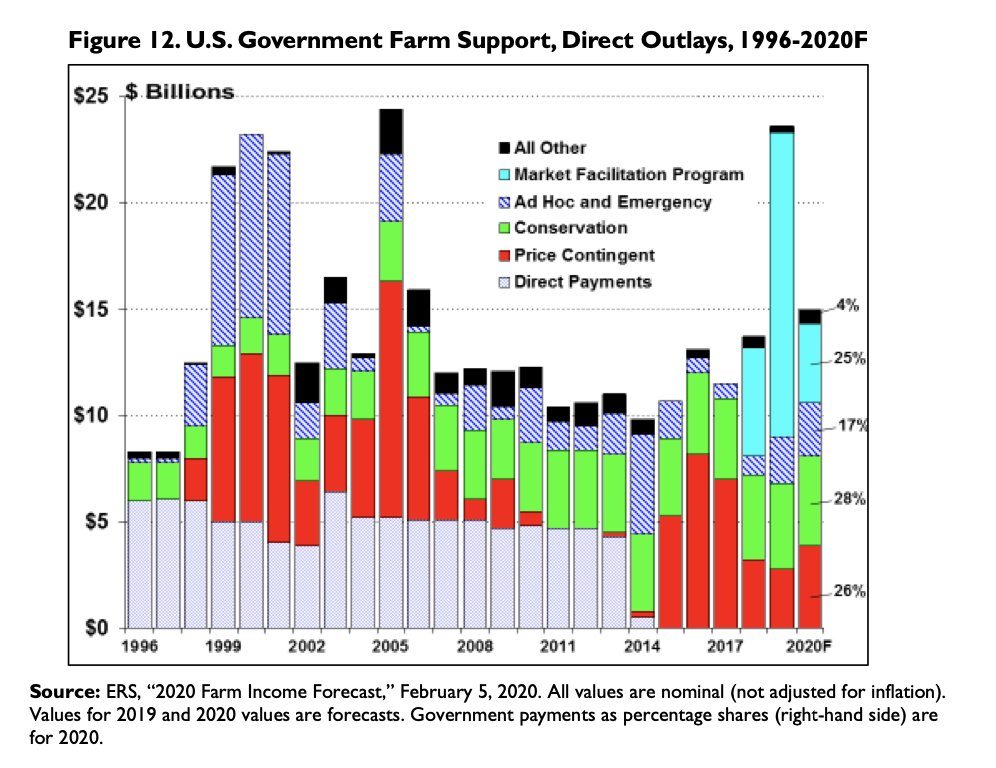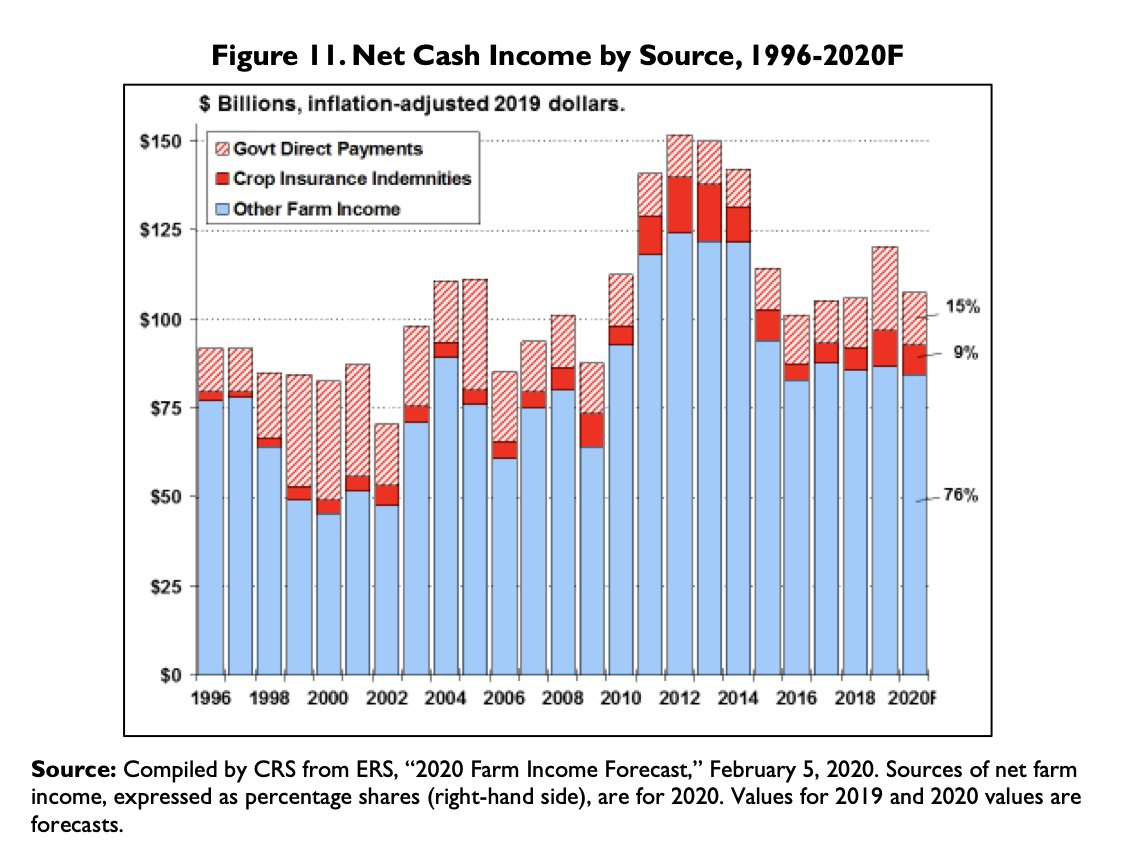Federal Reserve-Observations on the Ag Economy-February 2020
Last week, the Federal Reserve Board released its February 2020 Beige Book update, a summary of commentary on current economic conditions by Federal Reserve District. The report included several observations pertaining to the U.S. agricultural economy.
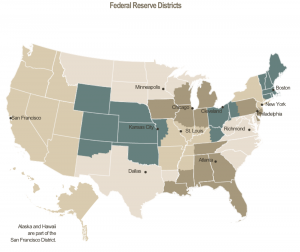
* Sixth District- Atlanta– “Agricultural conditions remained mixed. Most of the District remained drought free, but recent heavy rain resulted in some flooding conditions. On a month-over- month basis, the February production forecast for Florida’s orange crop was down while the grapefruit production forecast increased; both forecasts remain ahead of last year’s production. On a year-over-year basis, prices paid to farmers in December were up for corn, soybeans, beef, and milk but down for cotton, rice, broilers, and eggs. On a month-over-month basis, prices increased for corn, cotton, soybeans, beef, broilers and milk but declined for rice and eggs.”
* Seventh District- Chicago–
The outlook for crop farmers’ incomes deteriorated some in January and early February.
“Corn and soybean prices moved lower, though they remained higher than a year ago.
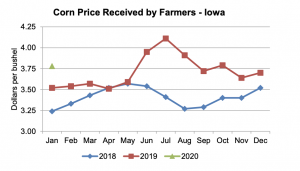
U.S. Government #Farm Support, Direct Outlays, 1996-2020F, (Congressional Research Service).
At @HouseAgDems hearing, @SecretarySonny tells producers to plant for the market this spring, admonishes #farmers not to expect another MFP- notes it’s not a price support program, was a trade disruption program
* Eighth District- St. Louis– “District agriculture conditions have declined slightly from the previous reporting period. The number of acres of winter wheat planted this season declined slightly from acreage planted in 2019. Farmers continue to emphasize the importance of Market Facilitation Program payments for supporting the industry.
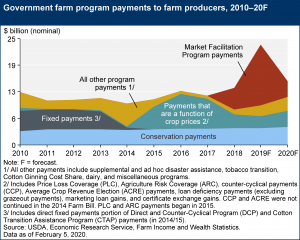
“Contacts raised questions and expressed concerns regarding trade with China, including when the trade agreement provisions will apply and what impact coronavirus will have on commodity prices and agricultural purchases.”
* Ninth District- Minneapolis– “District agricultural conditions were stable at low levels. More than half of Ninth District agricultural lenders reported that farm incomes decreased in the previous three months relative to a year earlier, while 60 percent reported decreased capital spending, according to the Minneapolis Fed’s fourth-quarter 2019 survey of agricultural credit conditions (conducted in January 2020).”
* Tenth District- Kansas City– “The District farm economy remained subdued but showed signs of stabilizing.
Farmland values strengthened slightly in the most recent survey period, providing some stability for the sector.
“Regional contacts reported that farm income and agricultural credit conditions generally remained weak, but deteriorated at a slower pace than previous survey periods. However, despite some signs of stabilization, geographic disparities persisted across the region. Farm real estate values increased modestly on the eastern side of the District, while farm income and credit conditions were moderately weaker in the western portion. Some bankers commented that trade relief payments provided notable support to farm finances, but many also indicated that ongoing financial challenges continued to be driven by low agricultural commodity prices.”
* Eleventh District- Dallas– “More than a third of Texas remained abnormally dry or in drought, though recent rainfall in some areas prompted optimism among producers heading into the new crop season. Row crop prices declined over the reporting period while cheese and milk prices trended higher.
Agricultural lenders said farmers generally came out of 2019 in pretty good shape with the help of government support payments, but that there is some concern going forward as income from government assistance has been on the rise the past couple of years, making farmers more vulnerable to policy changes.
* Twelfth District- San Francisco– “Export sales continued to falter somewhat due to international developments. On the one hand, contacts welcomed international trade deals and the prospects of easing tariffs on products including dairy sold to the Chinese market. On the other hand, reports mentioned that the COVID-19 outbreak has already started to negatively affect exports of nuts and other California crops. One contact in central California mentioned that precipitation levels so far this year are lagging somewhat relative to historical averages, which could affect future almond and cherry yields.”
Source: Keith Good, Farm Policy News


